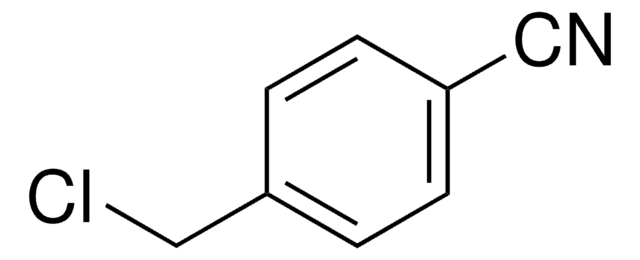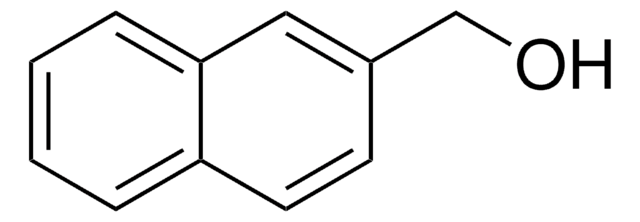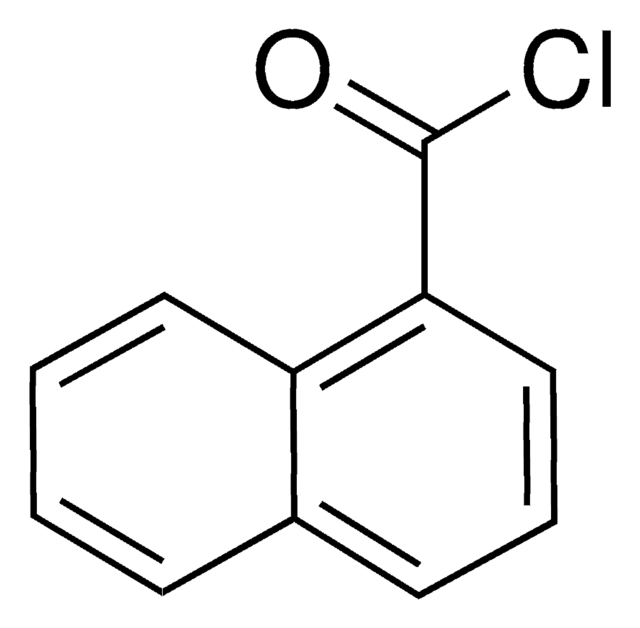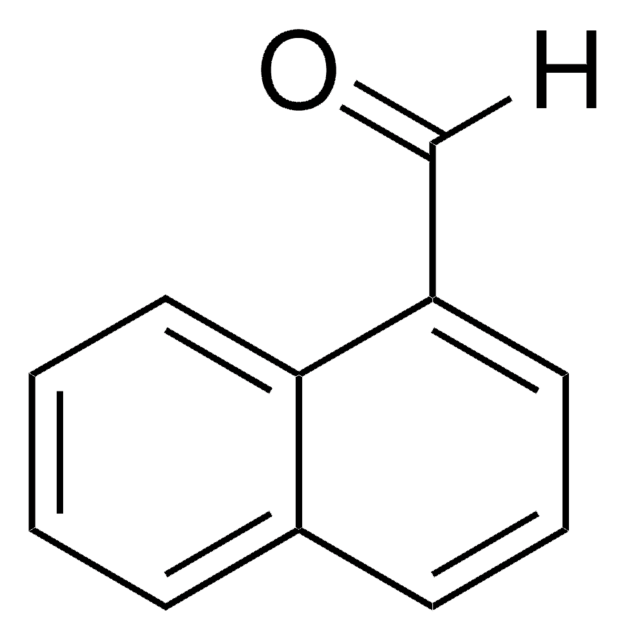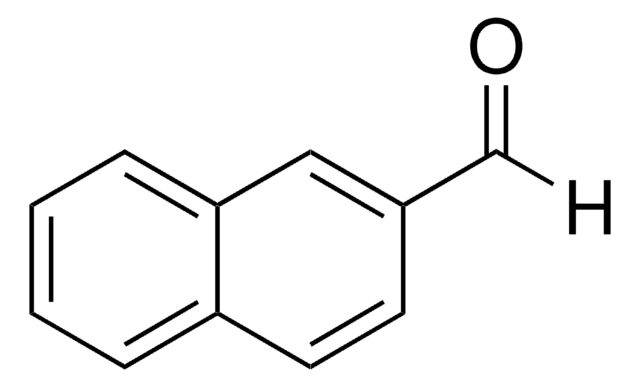726419
2-(Chloromethyl)naphthalene
≥97.0%
Synonym(s):
β-Naphthylmethyl chloride, 2-Menaphthyl chloride, 2-Naphthylmethyl chloride
About This Item
Recommended Products
assay
≥97.0% (GC)
≥97.0%
97.0-103.0% (T)
form
crystals
SMILES string
ClCc1ccc2ccccc2c1
InChI
1S/C11H9Cl/c12-8-9-5-6-10-3-1-2-4-11(10)7-9/h1-7H,8H2
InChI key
MPCHQYWZAVTABQ-UHFFFAOYSA-N
Related Categories
Application
- Improving insulin sensitivity: Research highlights dihydroberberine′s capacity to enhance insulin sensitivity through AMPK activation, offering a promising therapeutic strategy for managing insulin resistance and type 2 diabetes (Lewis and Falk, 2022).
- Anti-inflammatory effects: A study conducted on the anti-inflammatory properties of dihydroberberine found significant reductions in inflammatory markers, suggesting its potential as an anti-inflammatory agent in metabolic syndrome (Dian et al., 2022).
- Enhancing bioavailability: Investigations into the oral bioavailability of dihydroberberine demonstrate improvements over its precursor berberine, highlighting its superior pharmacokinetic profile which could lead to more effective clinical applications (Murakami, Bodor, and Bodor, 2023).
- Glucose uptake mechanisms: Studies on dihydroberberine have shown its effectiveness in facilitating glucose uptake, an essential function for metabolic health, through its interaction with cellular transport mechanisms (Moon et al., 2021).
signalword
Danger
hcodes
Hazard Classifications
Skin Corr. 1B
Storage Class
8A - Combustible corrosive hazardous materials
wgk_germany
WGK 3
flash_point_f
Not applicable
flash_point_c
Not applicable
Certificates of Analysis (COA)
Search for Certificates of Analysis (COA) by entering the products Lot/Batch Number. Lot and Batch Numbers can be found on a product’s label following the words ‘Lot’ or ‘Batch’.
Already Own This Product?
Find documentation for the products that you have recently purchased in the Document Library.
Customers Also Viewed
Our team of scientists has experience in all areas of research including Life Science, Material Science, Chemical Synthesis, Chromatography, Analytical and many others.
Contact Technical Service




